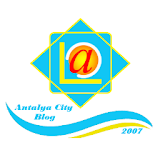Introduction
One of the biggest political crises of 2008 is the conflict between Russia and Georgia. This is the newest political crisis and this crisis is not effective in only Caucasus. This situation affected Georgia as politically, economically and physiologically but Russia-Georgia Conflict affected the rest of the world too. For instance, one year ago, Kosovo is recognized by some European Countries and the USA as independent country. After Russia-Georgia Conflict, Russia recognized Abkhazia and South Ossetia as independent countries. Thus, this can be an answer of recognizing of the independence of Kosovo by the USA. Also, today, many countries in the world have minority problem so the conflict between Russia and Georgia can affect other states such as Spain, Turkey, China, etc. Maybe, Russia just wanted to help Abkhazia and South Ossetia. There can be many reasons of Russia-Georgia Conflict. It depends on people’s perspectives.Because of this, I will explain the causes of the war between Russia and Georgia, according to some political perspectives of the international relations (IR),Neo-Realism and Liberalism.
Background on Russia-Georgia Conflict
In 1989, the USSR started to collapse and some nations wanted to be independent such as Georgia and South Ossetia. However, Georgians did not want to see South Ossetia as independent states. ‘When in 1991 the Soviet Union collapsed and Georgian independence (within the borders of the Georgian Soviet Republic, and therefore including South Ossetia and Abkhazia) was recognized by the international community, South Ossetia rejected this and continued to assert its independence. Georgia declared the South Ossetia autonomous republic abolished.’ Many years later after this event, in 2008, South Ossetia wanted to be independent from Georgia again. After that, Georgia attacked South Ossetia` s capital, Tskhinvali. Following day, Russian military came to South Ossetia and engaged Georgian forces around Tskhinvali. Georgia and Russia fought heavily in 5 days. After 5 days, Georgian military forces are repulsed and Georgian cities; Poti and Gori are occupied by Russian military forces. After that, the USA and the EU showed reaction for this situation. The USA`s hospital ship and NATO`s two battleships crossed from the Bosporus and Dardanelles straits. Actually, this is banned with Montreux Straits Treaty of 1936. ‘It severely restricts the passage of non-Turkish military vessels and prohibits some types of warships, such as aircraft carriers, from passing through the Straits.’ After that Nicholas Sarkozy went to Russia for mediation. Hence, Georgia and Russia reached a cease-fire agreement. However, Russia formed buffer zones against Georgia around Abkhazia and South Ossetia. After that Abkhazia and South Ossetia declared their independence from Georgia and Russia Federation recognize independence of these states although rest of the world` s reactions.
This conflict occurred between Russia, Georgia but there were other inside actors and outside actors such as separatist self-proclaimed republics of South Ossetia and Abkhazia as inside actors and the USA, the EU as outside actors. Moreover, there were some important players on this event, such as Mikhael Saakashvili as Prime Minister of Georgia, Dimitry Medvedev as President of Russia Federation, Vladimir Putin as Prime Minister of Russia Federation, Vasiliy Lunev as Minister of Defense of South Ossetia, Anatoliy Zaitsev as military spokesman of Abkhazia. They fought all together against Georgia. Nicolas Sarkozy as the EU chairman tried to play mediator role in this conflict. Also as an INGO, NATO interested with Russia-Georgia conflict and it sent war ships to Georgian costs.
Analysis
The conflict between Russia and Georgia is a big problem. As I said before, it affected whole world. Even NATO sent two battle ships to Georgian costs. This conflict could spread all over the world. Abkhazia and South Ossetia wanted to be independent from Georgian like in end of the 1980s but Georgia did not want this situation. ‘Vladimir Putin’s Kremlin had said that if Georgia attacked South Ossetia, Russia would fight. Georgian advocates in the West claimed that Moscow was only bluffing. It wasn’t.’ Georgia attacked and Russia answered as they said. However, who is the right side or wrong side? We don’t know this. International Relations Theories can explain this situation and they can give the answer of the question of who is the right or wrong side?
According to Neo-realism perspective, there are four main reason of the conflict between Russia and Georgia in fact. These are anarchy, Georgian weakness, balance of power, security dilemma.
The most important cause of the conflict is anarchy, according to neo-realism, because ‘there is no world government to prevent states from using force, states may pursue policies of war in their efforts to survive and pursue any other goals they may have.’ Anarchy can be internally or externally. External anarchy means that international anarchy. In case of the conflict between Russia and Georgia, Russia attacked Georgia and this is a good example of international anarchy because Russia attacked another independent state. Georgia attacked Abkhazia and South Ossetia but they were provinces of Georgia and this was domestic matter of Georgia but Russia interested with this issue and Russia started to fight against Georgia. Internal anarchy causes civil war, Abkhazia and South Ossetia wanted to be independent countries and they revolted against Georgia so it wanted to control their territories and attacked. ‘There is no international sovereign to protect states from domestic dissent or make them threat their inhabitants fairly.’ Moreover, Georgia was a week state politically, economically, etc. Of course when a state or government is week, it can lose some of its territory. Hence, Georgia lost Abkhazia and South Ossetia, although it doesn’t recognize their independence, because, Russia established buffer zone around Abkhazia and South Ossetia.
Second reason is that Georgian weakness according to neo realism. Georgia is a weak state politically, economically, etc. as a state. Because of this, ethnic groups in Georgia rebelled against Georgia. They wanted to gain independence from Georgia so Georgia attacked South Ossetia for overcome revolt. However, Weak states generally become targets of great powers. Hence, Russia helped Abkhazia and South Ossetia as militarily and later politically. Thus, Russia and Georgia started to fight.
Another factor of this conflict is balance of power. In the case of Kosovo, the USA recognized Kosovo as an independent state and this situation decreased Russia. Because, Russia supported Serbia and she did not recognize independence of Kosovo from Serbia. Hence, in the case of Russia-Georgia conflict, Russia support Abkhazia and South Ossetia and she recognized them as independent countries but the USA did not recognize their independence from Georgia. This can be seen as revenge but actually, this is not revenge. This is balance of power in the international relations.
Last factor is security dilemma. The U.S-Russian security dilemma is shaping the world. Actually, this caused by NATO` s expansion without Russia. Georgia wants to join NATO and Russia did not want this. This situation creates big security dilemma. Because of this, Russia tried to prevent Georgia with this conflict.
However, some media institutions said like Russian Imperialism and Russian Aggression but this is not true because according to liberal perspective, it emphasizes individual rights and equality of opportunity. Thus, Abkhazia and South Ossetia wanted to be independent from Georgia but Georgia attacked Abkhazia and South Ossetia and it killed many people including Russian citizens in South Ossetia because of this, Russia Federation attacked Georgia for protecting her citizens` s individual rights. Another thing is Georgia prohibited freedom of South Ossetia and Abkhazia by this attack.
Moreover, attacking of Georgia to South Ossetia and Abkhazia creates some prohibitions for economy and free trade. If Georgia did not start this conflict, the ports of Georgia would not close so this conflict prohibit right of free trade of people. Also, it affect Caucasian States` s economy.
After Rose Revolution in Georgia, Mikhael Saakashvili` s government applied aggressive policy toward ethnic society in Georgia like in the case of South Ossetia and Abkhazia. His government did not give equal rights them. Hence, this was not democratic governing. Because of this, always, ethnic groups in Georgia revolt against Georgia such as revolt of Autonomous Republic of Adjara, South Ossetia, Abkhazia, etc. Liberalism support self-determination for national minorities so independence is right of Abkhazia and South Ossetia but Mikhael Saakashvili wanted to prevent this situation so he attacked them. This situation created lack of liberty and injustice. In addition, communication is very important for liberalism because conflicts can solve with communication but Georgia did not communicate with South Ossetia, Abkhazia or Russia. They preferred military action. Mikhael Saakashvili` s Georgia should respect basic human rights of people such as security, liberty, property, etc. However, Georgian army killed minorities, prevented liberty of them, and destroys their private properties.
Conclusion
The conflict between Russia and Georgia is very critical issue. One side can say that Russia is right on this issue but on the other hand, other side can say that Georgia is right side. However, as a result, this conflict affected both sides as politically, economically, etc. I tried to find a solution for this rightfulness debate with two of international relations theories. These theories were neo realism (structural) and liberalism. Neo realism as an international relations theory shows us anarchy is the biggest problem on this conflict. It explains the biggest factor of the conflict with anarchy. Also, Neo realism shows other factors of the conflict, such as Georgian weakness, balance of power, and security dilemma. Georgian weakness shows us weak states can be target of other big states. Balance of power explained that there is a balance of power between Russia Federation and the USA. This situation shows us Georgia was used like a pawn in chess by Russia and the USA. Also, Georgia wanted to join NATO but Russia perceived this situation as a danger so this created a security dilemma. On the other hand, Liberalism shows us importance of freedom, protecting rights of minority groups, equality, etc. However, Georgia (Saakashvili` s Government) applied wrong method for finishing revolt against his governance. He applied military action and this creates big conflict between Russia and Georgia. There are many Russian citizens in the region of South Ossetia and Abkhazia so attacking of Georgia to this region made angry Russia Federation. These theories are opposite, because cooperating can overcome anarchy according to liberalism but according to neo realism anarchy is inevitable cause of the conflicts. This situation shows us liberalism is more optimistic than neo realism. Actually, liberalism cannot explain everything in the conflict but it is right in some points such as every state can respect basic human rights. Neo realism is very strict so it is based on term of anarchy but it can be better than other kinds of realism because structural realism rejects human nature as a source of conflicts. As a result, international relations theories help to see political events from different perspectives as in this term paper. Liberalism and neo realism provides to see Russia-Georgia Conflict with different ways and logic.
ISA BURAK GONCA
References:
1)http://www.newamerica.net/publications/articles/2008/roots_conflict_between_georgia_south_ossetia_and_russia_7728
2)http://www.todayszaman.com/tz-web/yazarDetay.do?haberno=150871
3)Sterling-Folker, Jennefer. Making Sense of International Relations Theory. Colarado: Lynne Rienner Publishers. 2006. pp.18-19























